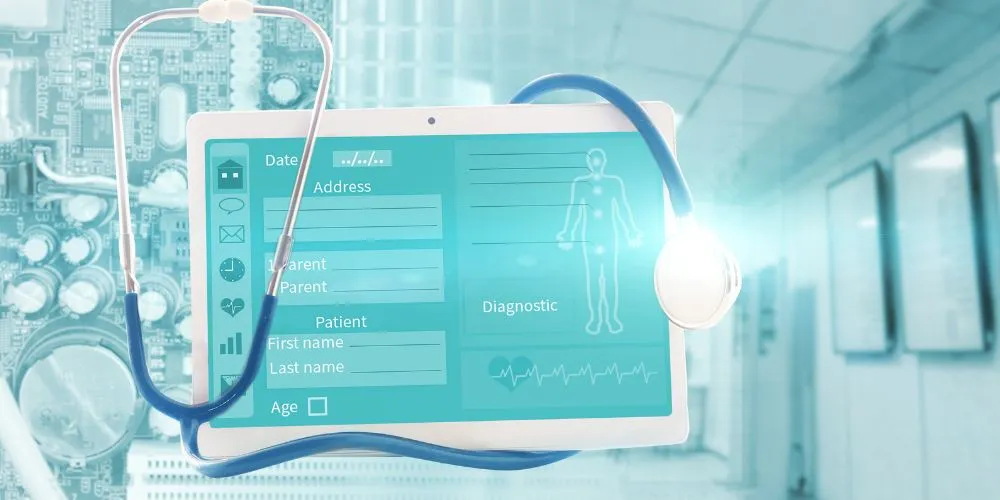The healthcare industry is undergoing rapid evolution, and technology plays a pivotal role in this transformation. From electronic health records (EHRs) to telemedicine platforms, the right technology can enhance patient care, streamline operations, and improve healthcare outcomes.
Guide to Procure Technology for Healthcare and Telemedicine
In this comprehensive step-by-step guide, we will walk you through the process of procuring technology for healthcare and telemedicine, ensuring that you make informed decisions to enhance the quality of care you provide.
Define Your Healthcare Objectives
Start by defining your healthcare objectives. Determine what you want to achieve, whether improving patient outcomes, enhancing operational efficiency, increasing accessibility, or complying with regulatory requirements. These objectives will serve as the basis for your technology procurement strategy.
Identify Specific Technology Needs
Based on your healthcare objectives, identify the specific technology needs that will help you achieve your goals. Consider areas such as EHR systems, telemedicine solutions, medical imaging, patient data security, remote monitoring, and healthcare analytics. Create a list of technology requirements that align with your healthcare strategy.
Assess Your Budget
Evaluate your budget for technology procurement. Determine how much you can allocate for software, hardware, and infrastructure. Be realistic about your financial constraints and ensure your budget is sufficient to meet your technology needs, while also allowing room for ongoing maintenance and updates.
Research Technology Solutions
Research and identify technology solutions that meet your healthcare requirements. Look for reputable vendors and platforms known for their effectiveness in healthcare settings. Read reviews, seek recommendations from peers in the industry, and consider factors like scalability and integration capabilities.
Request Proposals and Quotes
Contact potential technology vendors and request detailed proposals or quotes that align with your specific requirements. Provide vendors with comprehensive information about your healthcare objectives, preferred features, and budget constraints. Carefully review the proposals and quotes to make informed decisions about the best fit for your healthcare organization.
Evaluate Vendor Reputation and Support
Assess the reputation and customer support of the vendors you’re considering. Look for vendors with a strong track record of reliability, excellent customer service, and a commitment to the healthcare industry. Customer references and reviews can provide valuable insights into the vendor’s performance and support level.
Consider Data Security and Compliance
Data security and obedience are paramount in healthcare. Ensure that your technology solutions have robust security measures to protect patient data. To mitigate legal and reputational risks, verify that the vendor complies with relevant healthcare regulations and standards, such as the Health Insurance Portability and Accountability Act (HIPAA).
Review Integration Capabilities
Consider how well the technology integrates with your existing healthcare systems and infrastructure. Seamless integration is essential for sharing patient data, streamlining workflows, and ensuring the interoperability of various healthcare tools. Compatibility with industry standards, such as HL7, is a plus.
Conduct Pilot Programs
Before finalizing your decision, consider conducting pilot programs or trials of the technology solutions you are considering. It enables your healthcare team to evaluate the features, usability, and effectiveness of each solution in a real-world healthcare setting. Gather feedback and insights from healthcare professionals who will be using the technology.
Negotiate Contracts
Once you’ve identified the technology solution that best meets your healthcare needs, negotiate a contract with the vendor. Pay attention to pricing, licensing terms, support agreements, and customization or training requirements. Ensure that the contract aligns with your budget and healthcare-specific requirements.
Implement and Train
After finalizing the procurement, initiate the implementation process. Collaborate with the vendor to ensure a smooth transition and implementation of the technology within your healthcare organization. Provide comprehensive training to healthcare professionals to ensure they can effectively use the new technology.
Monitor and Optimize
Technology procurement in healthcare is an ongoing process. Continuously monitor the performance of the technology to ensure it achieves your healthcare objectives. Leverage healthcare analytics to optimize processes, improve patient care, and make data-driven decisions. Stay updated with vendor updates and enhancements to maximize the value of the technology.
Conclusion
Investing in technology for healthcare and telemedicine is a strategic move in the modern healthcare landscape. Following this comprehensive step-by-step guide, you can navigate the procurement process effectively and select the right technology solutions to support your healthcare objectives. Prioritize patient data security, compliance with healthcare regulations, and seamless integration to provide the best possible care to your patients. With the right healthcare technology, you can enhance patient outcomes, improve efficiency, and contribute to advancing the delivery of healthcare.





